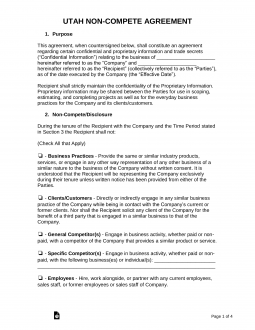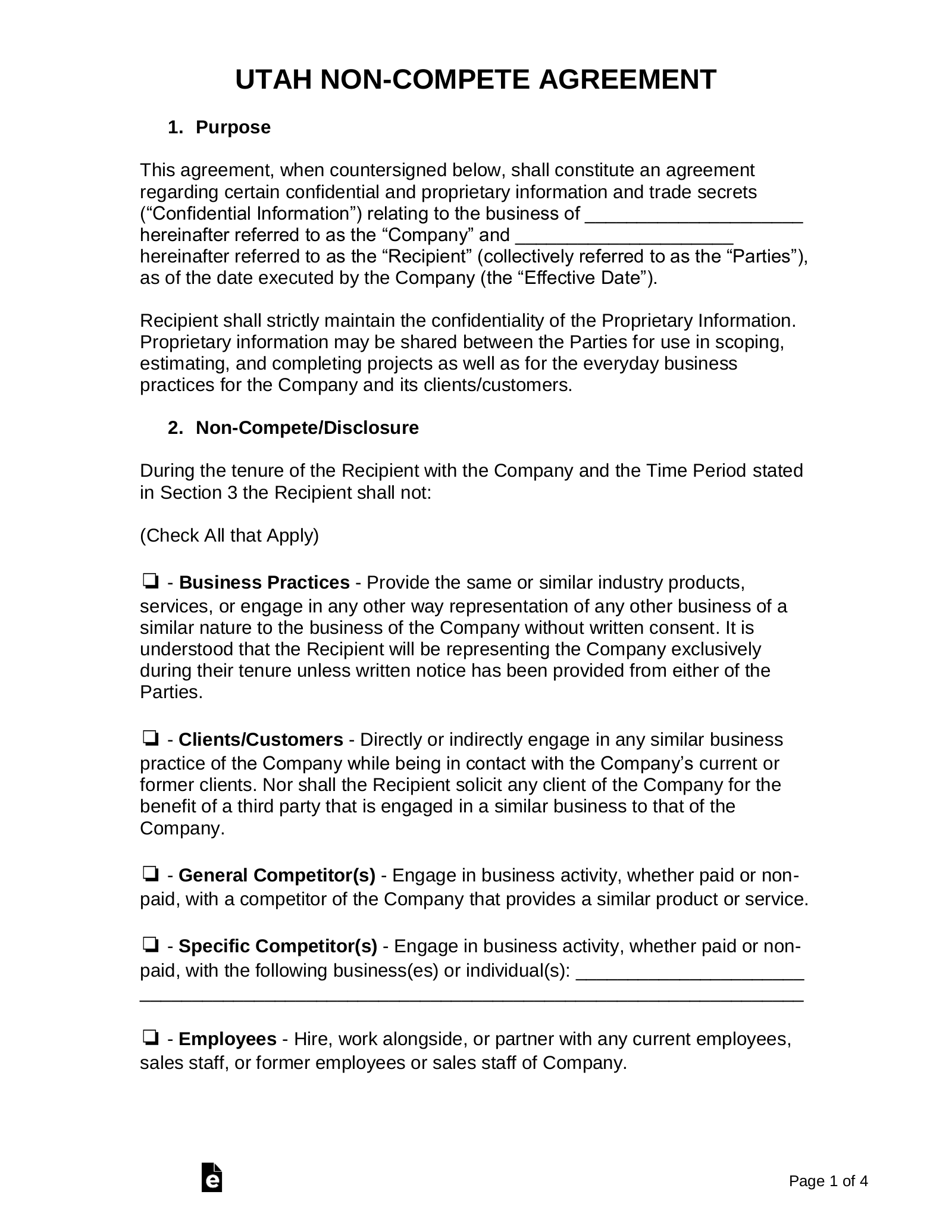Updated February 28, 2024
A Utah non-compete agreement reasonably prohibits an employee from working in the same industry as their employer after termination. A non-compete in Utah cannot be for more than 1 year and must specify a geographical area. Its main purpose is to protect the employer’s interests by safeguarding trade secrets, the goodwill of the business, and the efforts made to train and educate the employee.
Laws
Legally Enforceable?
Yes, a non-compete is enforceable in Utah if it is reasonable under the following exceptions:[1]
- Attorneys. Licensed attorneys are prohibited from entering a non-compete.[2]
- Broadcast employees. A broadcast employee (television, cable, or radio) may enter into a non-compete if:
- They make $913 or greater per week (or at the rate which makes them exempt under Fair Labor Standards Act, 29 U.S.C. Sec. 213(a));
- Part of an employment contract with “reasonable”;
- The broadcasting employer terminates the employee for cause; and
- The broadcasting employer breaches the employment contract, thus, making employment no longer valid.
Determining “Reasonable”
The Supreme Court of Utah has come up with 4 rules to determine if a non-compete is reasonable:[3]
- Consideration. That the covenant must be supported by consideration;
- Good faith negotiations. That no bad faith be shown in the negotiations of the contract;
- Necessary to protect the business. The covenant is necessary to protect the goodwill of the business; and
- Time and area. That it be reasonable in its restrictions in terms of time and area.
Protectable Interests
The Supreme Court has determined non-competes necessary “to protect the legitimate interests of the employer.” Such interests include:[4]
- Trade secrets;
- The goodwill of his business; or
- An extraordinary investment in the training or education of the employee.
Continued Employment
A non-compete is allowed for at-will employees as the court deems continued employment (or the promise of) to be valid consideration.[5]
Maximum Term
Violating a Non-Compete
If an employee should violate a non-compete, the employer will be entitled to:[8]
- All costs associated with the arbitration;
- Attorney fees and court costs; and
- Actual damages received by the employer.
Blue Penciling
Utah courts haven’t specifically ruled whether or not they modify or apply a “blue pencil” to non-competes. In 1 case, the Supreme Court amended an agreement that didn’t have a geographical area limitation, instead, the court amended the agreement to be nationwide.[5]
“Noncompete Agreement” Definition
“noncompete agreement,” means an agreement, written or oral, between an employer and employee under which the employee agrees that the employee, either alone or as an employee of another person, will not compete with the employer in providing products, processes, or services that are similar to the employer’s products, processes, or services.[9]


